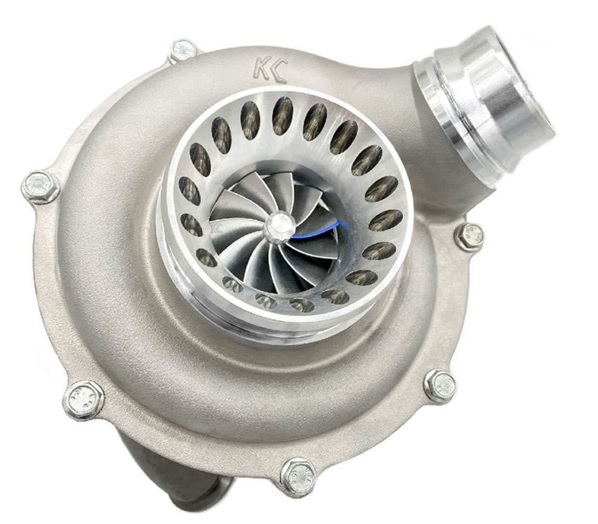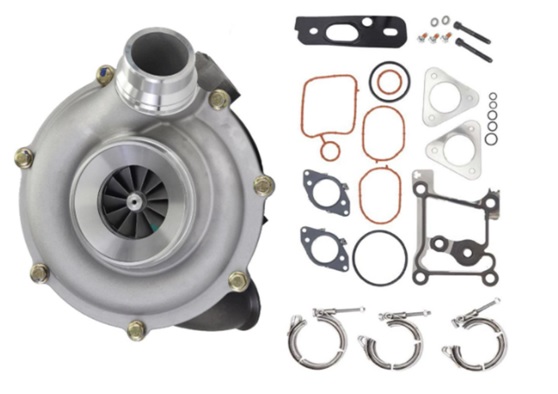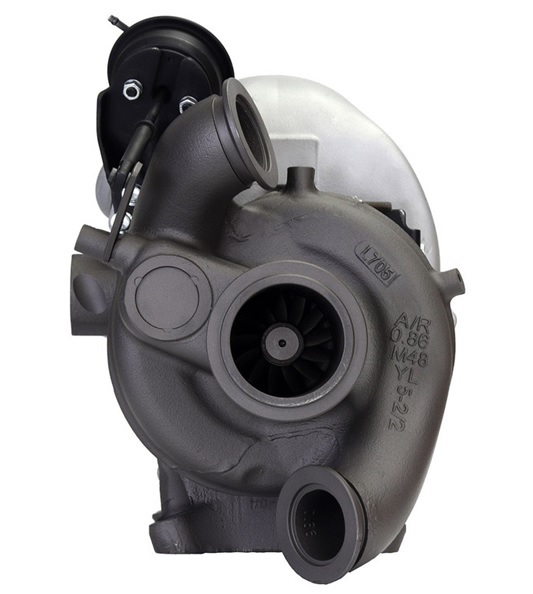21st Dec 2022
A Brief Intro to Replacing Diesel Turbos
Are you a fan of increasing the power and torque of your car? Perhaps you already have that diesel turbo installed in your ride to help you that extra boost of power. Or maybe you love racing and looking to replace a turbo that’s been damaged or is looking a bit rundown.
Whatever the reason, it’s always important to know a little bit more about diesel turbos, how they work, and what their advantages are over engines without turbos, and what’s the best way to replace a broken turbo.
How Do Turbochargers Work?
In principle, turbochargers work very similarly to piston engines. The power output that turbos provide all depends on the increased airflow which burns additional fuel every second and thus provides your vehicle with more torque.
The way that a turbocharger works is that the airflow to the cylinders is increased by an air compressor that's rotated by an exhaust-powered turbine. This additional airflow improves the combustion efficiency and horsepower of the engine.
Advantages of Diesel Turbos
Diesel engines, compared to petrol engines, already have several advantages over them, such as:
- More powerful torque and power
- They have less engine parts, which means they require less maintenance
- They can run on alternative fuels such as biodiesel
That said, adding a diesel turbo has one big advantage to it: an even bigger increase in torque and power. So for vehicles with smaller engines, looking to increase their output and performance, this added boost by itself can be a huge advantage.
Diesel truck turbos are also helpful if your trucks are often used for carrying around heavy loads. The added power is certain to give you that much-needed boost that will help with all your towing operations. Diesel engines, by design, are already more-suited for towing compared to gasoline engines.
Giving your farm machinery a turbocharged engine, then, could very much lighten the load and give your truck or tractor that added horsepower to tow and pull other heavy loads from one location to another.
Do Turbos Damage Your Engine?
By design, turbos tend to put on a heavy load on a lot of parts of your engine. This is due to the fact that when in use, turbos usually rotate at about 150,000 RPM and can reach temperatures as high as 350°C. In fact, you'll find turbos grow visibly red due to this intense heat.
All this intense pressure and load that turbos place on your vehicle affect your oil channels and lubricants. High temperatures are capable of clogging your oil channels, which in turn can cause turbo problems.
To help prevent any problems with your diesel turbos, it's best to do the following:
- Regularly change your engine oils
- Make sure you're using good quality engine oils
- Perform regular maintenance on your vehicle
Most importantly, whenever you encounter any small or seemingly insignificant problem with regards to your turbo or your engine, make sure to immediately have it checked by a specialist. You want to take action as soon as possible to repair and resolve any problems and damages. Because the longer you prolong any slight changes or issues, the more costly it will be for you in the end.

Some Causes of Turbo Failure
Did you know that less than 1% of turbo warranty inspections find that the fault lies with the turbo itself? This simply means that turbochargers are actually very durable and reliable. What happens, then, when you get a blown turbo is that there are likely some problems with regards to engine lubrication and the creeping in of foreign objects.
1. Engine Lubrication
When’s the last time you had an oil change? Do you check your engine oil levels regularly? Having a well-lubricated engine is essential for every vehicle. It’s what protects your engine from corrosion, and it also plays a role in keeping the engine cool while it’s running. This is especially important for vehicles that use turbochargers, as things can heat up pretty quickly.
2. Foreign Objects
There’s always that chance that dust, dirt, leaves, and pebbles enter your turbo through either the turbine inlet or the compressor inlet. When this happens, it can cause considerable damage to the turbine blades and compressor wheels. The best way to prevent this damage from happening is to regularly service and replace your air filters and check your turbo for any foreign objects or debris.
How Often Do Diesel Turbos Need to Be Replaced?
Generally speaking, most diesel turbos are designed to last somewhere around 150,000 miles (or the lifetime of a vehicle). Of course, like any machine or tool, it’s always possible to wear them out faster than their designed lifespan.
Some of the things that can contribute to wearing out your turbo faster is the way in which the car is driven, or the original build quality of the turbo. That’s why it’s also important to do your proper research on which turbos work best and are a perfect fit for your vehicle and your manner of driving

Is It Hard to Replace a Turbo?
One question we sometimes get asked is, “Can I replace a turbo myself?”
For most modern car engine bays, it can be challenging to replace a turbocharger. Unless you’re a seasoned mechanic, it’s not always recommended, especially since some vehicle manufacturers recommend that the engine be removed for you to replace a turbo charger.
That said, if you’re confident in your mechanical knowledge of cars, and have successfully removed and reattached an engine yourself, it’s recommended that you get help from more tenured professionals. If you have any questions regarding diesel turbo replacement, our doors are always open.

Finding the Perfect Diesel Turbo Replacement
Replacing a diesel turbo comes with its set of challenges. If you're looking to replace a diesel turbos that’s served you well for the past couple of years, you can send your turbo through to our Mesa location for a full rebuilding service. We've got a wide selection of truck turbos from Cummins, Duramax, and Powerstroke, all ready to help you do that heavy lifting. So if you’re looking to avail of our Turbocharger R&R services, you can fill out the contact form on our website or give us a call at 480-427-6200.

